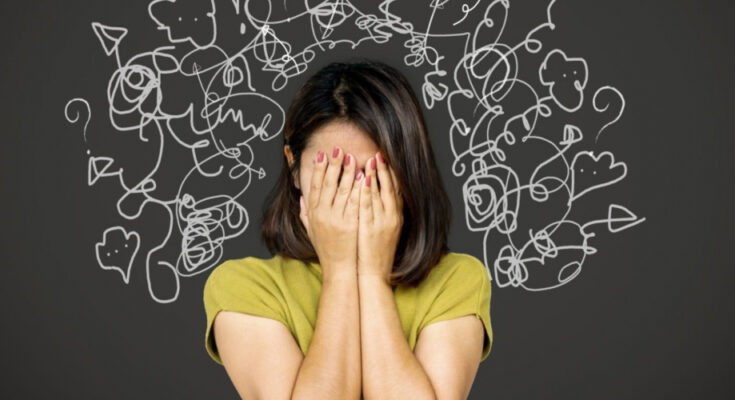Mental health is a vital component of overall well-being, but it is often neglected or misunderstood. Is anxiety disorder a disability, depression, and Borderline Personality Disorder Medication (BPD) are common mental health conditions that can significantly impact daily life. The importance of seeking professional treatment cannot be overstated, and understanding whether these conditions can be classified as disabilities, the role of treatment centers, and the medication options available for BPD can make a huge difference in managing these disorders.
Is Anxiety Disorder a Disability?

Anxiety disorders are some of the most familiar mental health conditions globally. They contain a range of topics, including generalized anxiety disorder (GAD), panic disorder, social anxiety disorder, and specific phobias. While anxiety is a natural reaction to stress, when it becomes chronic or overwhelming, it may be considered a disorder.
The question often arises: Is anxiety disorder a disability? The answer depends on the severity of the condition and its impact on an individual’s ability to function in daily life. According to the Americans with Disabilities Act (ADA), a person may qualify for a disability if the anxiety disorder significantly limits major life activities, such as working, socializing, or caring for oneself. If anxiety is severe enough to cause this kind of impairment, it can be classified as a disability under certain circumstances.
For instance, a person with an anxiety disorder might find it challenging to attend work, perform job duties, or even engage in social interactions due to overwhelming fear or worry. In such cases, it is crucial to seek professional help, including therapy, medication, and lifestyle changes, to better manage the symptoms.
The Importance of Depression Treatment Centers

Depression is another common yet serious mental health disorder that can deeply affect a person’s mood, thoughts, and daily functioning. While everyone experiences sadness at times, depression is a persistent and debilitating condition that can last for weeks, months, or even years if left untreated.
This is where depression treatment centers come in. These technological skills deliver complete care to people working with depression. Treatment centers offer a variety of services tailored to the needs of each patient, including individual and group therapy, medication management, lifestyle support, and holistic approaches.
One of the significant benefits of depression treatment centers is that they provide a safe and supportive environment for patients to focus entirely on their recovery. These centers are staffed with professionals who specialize in mental health, ensuring that each patient receives evidence-based treatments that are proven to help manage depression effectively. Whether a person is struggling with major depressive disorder, seasonal affective disorder, or another form of depression treatment centers are equipped to offer the necessary support.
Furthermore, depression treatment centers often include aftercare programs that help patients transition back into their daily lives while continuing to manage their depression. This ongoing support can make a big difference in preventing relapses and maintaining long-term mental health.
Borderline Personality Disorder Medication

Borderline Personality Disorder Medication is a multifaceted mental health condition marked by severe emotional instability, challenges in maintaining relationships, impulsive behaviors, and a distorted sense of self. People with BPD may experience rapid mood swings, intense fear of abandonment, and difficulty regulating emotions, often leading to behaviors that can seem erratic or unpredictable.
Treating borderline personality disorder medication is often a part of a comprehensive treatment plan. While psychotherapy is considered the primary treatment for BPD, certain medications can be prescribed to help manage symptoms, such as mood swings, depression, and anxiety.
Common medications used in the treatment of BPD include:
- Antidepressants: These can help manage mood swings, reduce feelings of sadness, and alleviate anxiety, all of which are common in BPD.
- Antipsychotic Medications: In some cases, low doses of antipsychotic medications are used to help control severe emotional dysregulation or paranoia.
It’s important to note that no medication is a “cure” for BPD, and it is most effective when combined with therapy, particularly dialectical behavior therapy (DBT), which is specifically designed for people with BPD.
Holistic Approaches and Treatment Options for All Three Disorders
Beyond traditional medications, a variety of holistic approaches can support mental health management for is anxiety disorder a disability, depression, and borderline personality disorder. These can include:
- Cognitive Behavioral Therapy (CBT): CBT is effective for both anxiety and depression and can be adapted to help individuals with BPD.
- Mindfulness and Meditation: Practices that help individuals stay grounded in the present moment can be especially beneficial in managing the stress, anxiety, and emotional turmoil associated with these disorders.
- Exercise: Regular physical activity has been shown to improve mood, reduce anxiety, and enhance overall well-being. For those dealing with depression or anxiety, even moderate exercise can make a significant difference.
- Dietary Adjustments: Certain foods can positively impact mental health.
- Support Groups: Group therapy or peer support can offer a sense of community and shared understanding, which is particularly beneficial for those with depression or BPD.
The Role of Support Systems
Anxiety disorders, depression treatment centers, and BPD can be isolating conditions, which is why having a strong support system is vital for recovery. Whether it’s family, friends, therapists, or support groups, connecting with others who understand and can offer emotional support can greatly enhance the recovery process. For those dealing with BPD, in particular, learning how to build and maintain healthy relationships is an important aspect of treatment.
Mental health challenges, while difficult, are manageable with the right approach and support. Whether it’s an anxiety disorder, depression, or borderline personality disorder medication , the journey to recovery involves a combination of therapy, medication, lifestyle changes, and, most importantly, a robust support network. Seeking help is an essential first step, and it’s crucial to understand that help is available. Additionally, a supportive network can help people stay motivated to follow through with treatment plans, adhere to therapy sessions, and maintain medication routines. This emotional and practical support can make all the difference in helping individuals feel empowered and hopeful throughout their recovery process
FAQs
1. Is anxiety disorder considered a disability?
Anxiety disorder can be considered a disability under certain circumstances. If the anxiety disorder significantly limits a person’s ability to perform major life activities such as working, socializing, or caring for themselves, it may qualify as a disability under the Americans with Disabilities Act (ADA). However, the severity of the disorder and its impact on daily life are key factors in this determination.
2. What services do depression treatment centers provide?
Depression treatment centers offer a variety of services designed to support individuals dealing with depression. These include individual and group therapy, medication management, lifestyle guidance, and holistic approaches. The goal is to provide a comprehensive treatment plan that addresses both the symptoms of depression and its underlying causes in a supportive, controlled environment.
3. What medications are commonly used to treat borderline personality disorder (BPD)?
There are no specific medications that “cure” BPD, but medications are often used to manage symptoms like mood swings, anxiety, and depression. Common medications for BPD include:
- Antidepressants: To manage mood disorders and reduce anxiety.
- Mood Stabilizers: To control intense mood swings and impulsive behaviors.
- Antipsychotic Medications: For severe emotional dysregulation or paranoia.
These medications are most effective when used alongside therapy, such as Dialectical Behavior Therapy (DBT).
4. How can anxiety disorder impact daily life?
Anxiety disorder can significantly affect daily life by making it difficult for individuals to function in social, work, or personal settings. Persistent worry, panic attacks, and overwhelming fear can interfere with job performance, relationships, and self-care routines. Seeking professional treatment can help individuals manage these symptoms and regain control over their lives.
5. Are depression treatment centers only for severe cases of depression?
No, depression treatment centers are suitable for individuals at various stages of depression, from mild to severe. These centers provide tailored support and treatments for people struggling with any level of depression, ensuring each person receives the appropriate care to help manage their condition and work toward recovery.




Good write-up. I certainly appreciate this website. Keep it up!